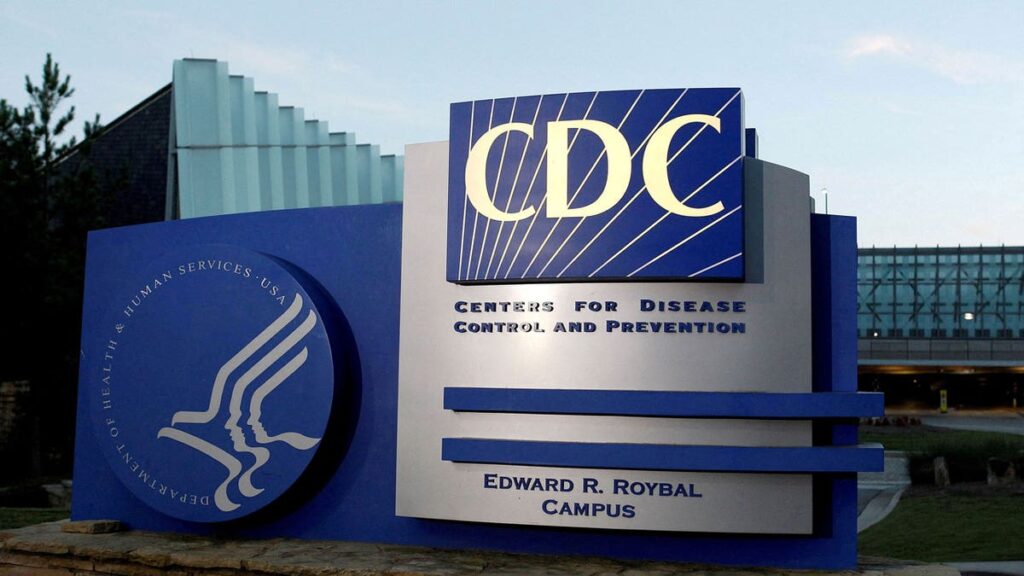In a surprising twist of events, the White House has decided to withdraw the nomination of David Weldon as the director of the Centers for Disease Control and Prevention (CDC). This abrupt decision came just hours before Weldon’s scheduled confirmation hearing, leaving many to question the future of leadership at one of the nation’s most critical public health agencies.
David Weldon’s Nomination Withdrawn
The Senate Health, Education, Labor and Pensions (HELP) Committee announced the cancellation of Weldon’s confirmation hearing early Thursday morning. Sources close to the nomination process revealed that the White House pulled Weldon’s nomination due to a lack of support in the Senate. “It became clear that the votes weren’t there in the Senate for him to get confirmed. This would have been a futile effort,” a source told Fox News Digital.
Why Was Weldon’s Nomination Withdrawn?
David Weldon, a medical doctor and former Florida congressman, faced significant controversy due to his past statements on vaccines. During his time in Congress, Weldon introduced legislation aimed at banning mercury from vaccines. In a 2007 statement, he expressed concerns about potential links between vaccines and childhood neurodevelopmental disorders, such as autism.
These statements were expected to be a focal point during his confirmation hearing. Critics argued that Weldon’s views on vaccines could undermine public trust in the CDC, especially during a time when vaccine confidence is crucial for public health.
Impact on Public Health Leadership
The withdrawal of Weldon’s nomination leaves the CDC without a permanent director at a critical time. The agency has been grappling with numerous challenges, including the ongoing response to the global health crisis and efforts to rebuild public trust in its recommendations.
However, the Senate HELP Committee confirmed that it would proceed with the nominations of Dr. Jay Bhattacharya for National Institutes of Health (NIH) director and Dr. Marty Makary for Commissioner of the U.S. Food and Drug Administration. These nominations suggest that the administration is still committed to filling key public health leadership positions despite the setback with Weldon.
What This Means for the CDC
The CDC now faces an uncertain future without a confirmed director. Acting directors have been managing the agency, but a permanent leader is essential for long-term strategic planning and rebuilding public trust.
The withdrawal of Weldon’s nomination highlights the challenges of appointing a CDC director who can navigate the complex landscape of public health policy, scientific research, and political scrutiny. The next nominee will need to demonstrate a strong commitment to evidence-based public health practices and the ability to communicate effectively with the public.
The Controversy Surrounding Weldon’s Vaccine Views
David Weldon’s past statements on vaccines were a significant factor in the withdrawal of his nomination. In 2007, Weldon stated that there were “legitimate questions” about potential links between vaccines and childhood neurodevelopmental disorders. He also co-sponsored legislation with former Rep. Carolyn Maloney to ban mercury from vaccines.
These views sparked intense debate among public health experts and policymakers. Many argued that Weldon’s skepticism about vaccines could erode public confidence in the CDC’s recommendations, particularly during a time when vaccine uptake is crucial for controlling infectious diseases.
Public Health Experts Weigh In
Public health experts expressed relief at the withdrawal of Weldon’s nomination. Dr. Sarah Johnson, a leading epidemiologist, stated, “The CDC needs a director who can uphold the highest standards of scientific integrity and public trust. Weldon’s views on vaccines were a significant concern.”
However, some supporters of Weldon argued that his skepticism about certain vaccine ingredients was a legitimate concern that deserved further investigation. They believed that his nomination could have brought a fresh perspective to the CDC’s vaccine policies.
What’s Next for the CDC?
With Weldon’s nomination withdrawn, the White House must now find a new candidate for the CDC director position. The search for a new nominee will likely focus on candidates with strong credentials in public health, a commitment to evidence-based practices, and the ability to navigate the political landscape.
The next CDC director will face numerous challenges, including:
- Rebuilding public trust in the agency’s recommendations.
- Addressing ongoing public health crises, such as the global health crisis.
- Advancing the agency’s scientific research and data collection efforts.
- Navigating the complex relationship between public health and political agendas.
The White House has not yet announced a timeline for appointing a new CDC director. However, given the urgency of the situation, it is likely that the administration will move quickly to fill the position.
The Broader Implications
The withdrawal of David Weldon’s nomination as CDC director has broader implications for public health policy and the political landscape. It highlights the challenges of appointing leaders to key public health positions during a time of heightened scrutiny and controversy.
The incident also underscores the importance of public trust in public health agencies. The CDC’s recommendations play a crucial role in guiding public health policy and individual decision-making. Any perception of bias or skepticism about scientific evidence can undermine the agency’s effectiveness.
Moreover, the withdrawal of Weldon’s nomination raises questions about the role of political considerations in public health appointments. The Senate’s decision to withdraw support for Weldon suggests that political factors can significantly impact the appointment of key public health leaders.
Looking Ahead
As the White House searches for a new CDC director, it will be essential to find a candidate who can navigate these complex challenges. The next director must be able to uphold the highest standards of scientific integrity, communicate effectively with the public, and build trust in the agency’s recommendations.
The public health community will be watching closely to see who emerges as the next nominee for this critical position. The choice of the next CDC director will have far-reaching implications for public health policy and the nation’s ability to respond to future health crises.
In the meantime, the CDC will continue to operate under acting leadership. However, the agency’s ability to effectively address ongoing public health challenges may be limited without a permanent director in place.
As this story continues to develop, it is clear that the withdrawal of David Weldon’s nomination marks a significant moment in the ongoing effort to strengthen public health leadership in the United States. The coming weeks and months will be crucial in determining the future direction of the CDC and its role in protecting the nation’s health.
Source: www.foxnews.com

